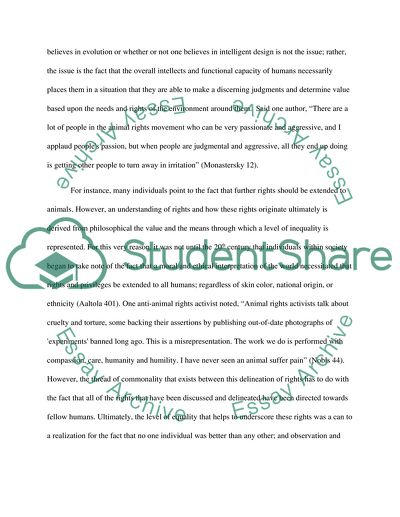Cite this document
(The Desire to Equalize Animals in Rights with Humans - Absurdity or th Term Paper - 5, n.d.)
The Desire to Equalize Animals in Rights with Humans - Absurdity or th Term Paper - 5. Retrieved from https://studentshare.org/ethics/1662878-human-and-animal-interrelationships-from-domestication-to-present
The Desire to Equalize Animals in Rights with Humans - Absurdity or th Term Paper - 5. Retrieved from https://studentshare.org/ethics/1662878-human-and-animal-interrelationships-from-domestication-to-present
(The Desire to Equalize Animals in Rights With Humans - Absurdity or Th Term Paper - 5)
The Desire to Equalize Animals in Rights With Humans - Absurdity or Th Term Paper - 5. https://studentshare.org/ethics/1662878-human-and-animal-interrelationships-from-domestication-to-present.
The Desire to Equalize Animals in Rights With Humans - Absurdity or Th Term Paper - 5. https://studentshare.org/ethics/1662878-human-and-animal-interrelationships-from-domestication-to-present.
“The Desire to Equalize Animals in Rights With Humans - Absurdity or Th Term Paper - 5”, n.d. https://studentshare.org/ethics/1662878-human-and-animal-interrelationships-from-domestication-to-present.


